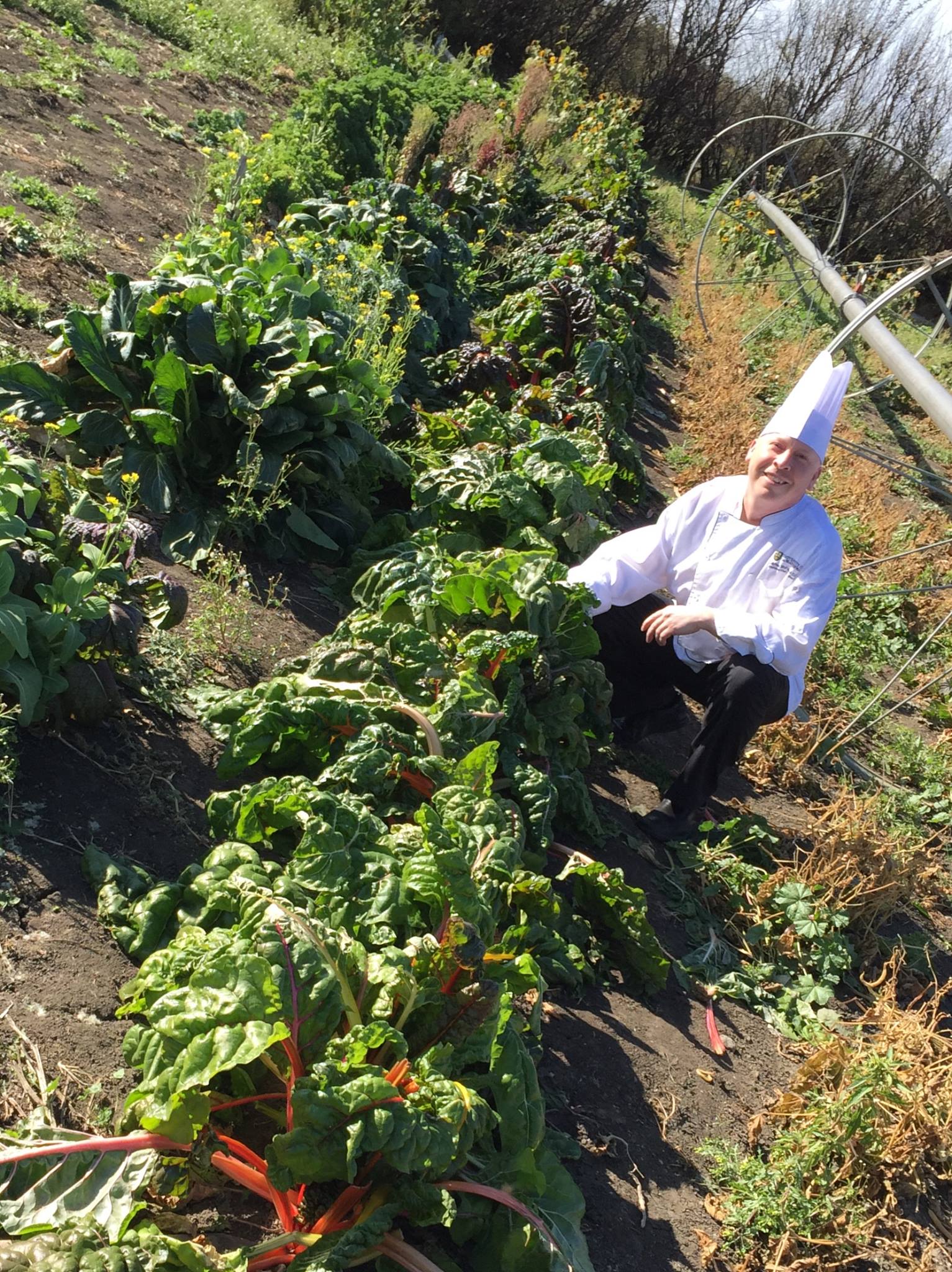Sustainability Spotlight - James McFarland
Sustainability Spotlight - a new initiative by the Office of Sustainability - aims to cast a light on the individuals on campus going over and above their regular duties in the name of sustainability. Today's spotlight features James McFarland, Assistant Director and Executive Chef of Culinary Services
By Matt Wolsfeld
Welcome to Sustainability Spotlight, a chance to highlight the individuals around campus going above and beyond to advance sustainability at the University. For years now Culinary Services has been a shining beacon of making sustainable choices while addressing the nutritional needs of its customers. James McFarland, Assistant Director and Executive Chef of Culinary Services, has made it a goal to show that sustainability does not have to involve massive changes in the workplace in order to facilitate great impacts.
One of the keys to James’ success is the ability to make purchasing decisions based not only on price but also factoring in overall quality, sustainability and as well as the balancing of convenience with the skills of his kitchen staff. For example having the skill in the kitchen to efficiently clean and fillet 25 whole Lake Diefenbaker Steelhead Trout at a time not only provides a fresher higher quality product, but also the opportunity to serve a local sustainable product. James purchases locally sourced foods – which carry a much smaller environmental footprint than conventional foods – as much as possible. James’ local purchasing habits even extend to the University’s own Horticulture Club, from whom he has bought fresh kale, Swiss chard, squash, and other vegetables during the summer and fall.
Many of the initiatives James has taken on are small in nature but carry a big impact. His decision to turn Marquis Hall tray-less not only saves dishwashing water, but had the accessory effect of reducing food waste. “People tend to not take more than they need when they are limited in the amount they can carry. If they want seconds they can come back for seconds, but we don’t see nearly as many trays full of uneaten food anymore. In turn, by reducing waste, we are able to offer better ingredients such as the local Lake Diefenbaker Trout” Other small initiatives around Marquis, such as biodegradable to-go containers continue to help reduce Culinary Services' environmental impact.
Perhaps one of the most recent and exciting initiatives James has undertaken is the development of the University’s very own breakfast cereal. A collaborative effort with the U of S Food Centre, the cereal is a highly nutritious and made from 75% locally-sourced lentils. The cereal is ready to be made available at Marquis Dining Hall soon and, with accompanying cereal bars hopefully on the way, James is hoping to see it become a hit with visitors.
There is still much James hopes to be able to accomplish for Culinary Services on the sustainability front. His next goal is to establish a composting solution for Marquis Hall. With food waste representing 50% of the University’s overall landfillable waste, he believes this could be a major stepping stone towards sustainable waste management. Until then, James is keeping a constant eye on sustainability and how it can make life easier for Culinary Services and for the rest of the University.

